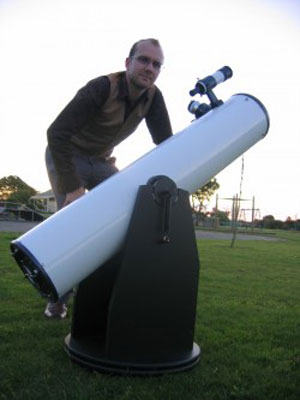Astronomer
Tasks & duties

Depending on their field of work, astronomers may do some or all of the following:
-
study the formation, structure and evolution of stars, galaxies, planets and the universe
-
write their own computer programs and analysis techniques
-
work on research projects individually or with other astronomers, often from other countries
-
write research papers for scientific journals
-
present talks at conferences
-
teach and/or promote astronomy or astrophysics at universities
-
do administration work for observatories
Specialisations
A small number of astronomers work in museums that house planetariums. These astronomers develop and update programmes that are presented to the public, and may direct planetarium operations.
Astronomers who work in space travel research may also apply their knowledge to solve problems in navigation, satellite communications and space flights, and to develop the instrumentation and techniques used to observe and collect astronomical data.
Skills & knowledge

Astronomers need to have:
-
knowledge of astronomy
-
research skills
-
skill in analysing and interpreting research results and other information
-
practical skills for performing experiments and operating scientific equipment
-
problem-solving skills
-
planning and organisational skills
-
communication skills
-
writing skills, for writing reports and for publications
-
maths and computer skills
Entry requirements
To become an astronomer you need a Master's degree in astronomy, physics or mathematics. However, a PhD is preferred.
Secondary education
A tertiary entrance qualification is required to enter tertiary training. Bursary or NCEA Level 3 maths and physics is preferred.
Tertiary education
Universities offering astronomy degrees in New Zealand:
-
Canterbury University
-
Auckland University
-
Auckland University of Technology
-
Victoria University of Wellington.
Training on the job
Astronomers must keep up to date with developments in their field through reading and attending seminars, courses and conferences.
Useful experience
Useful experience for astronomers includes:
-
a background in amateur astronomy
-
work experience with a professional astronomer
-
voluntary work at community observatories
Related courses
Astronomy
Atmospheric Sciences
Geology
Geophysics
Mathematics
For more information, please refer to Career Services.
Document Actions
